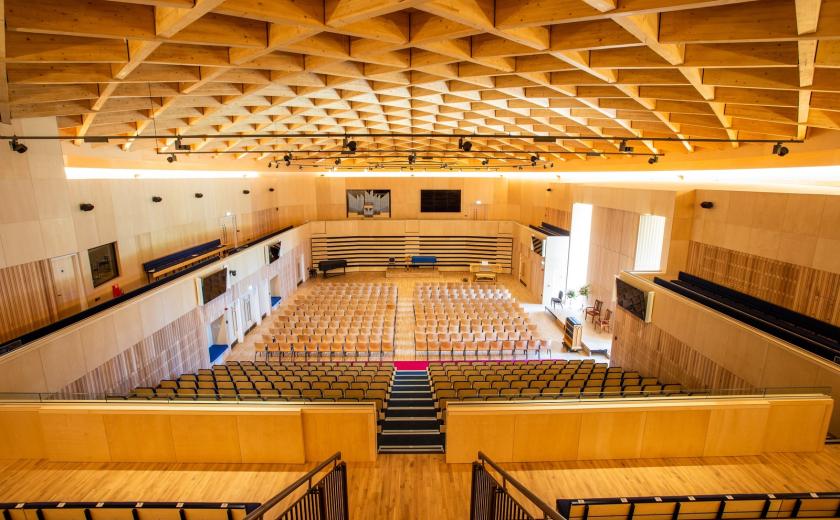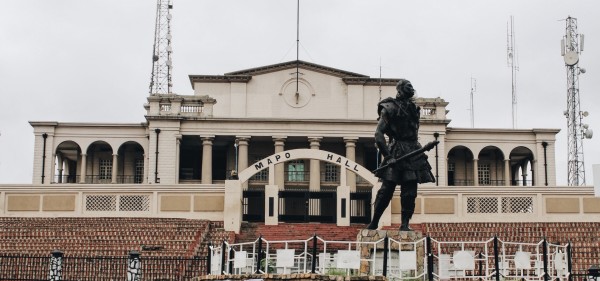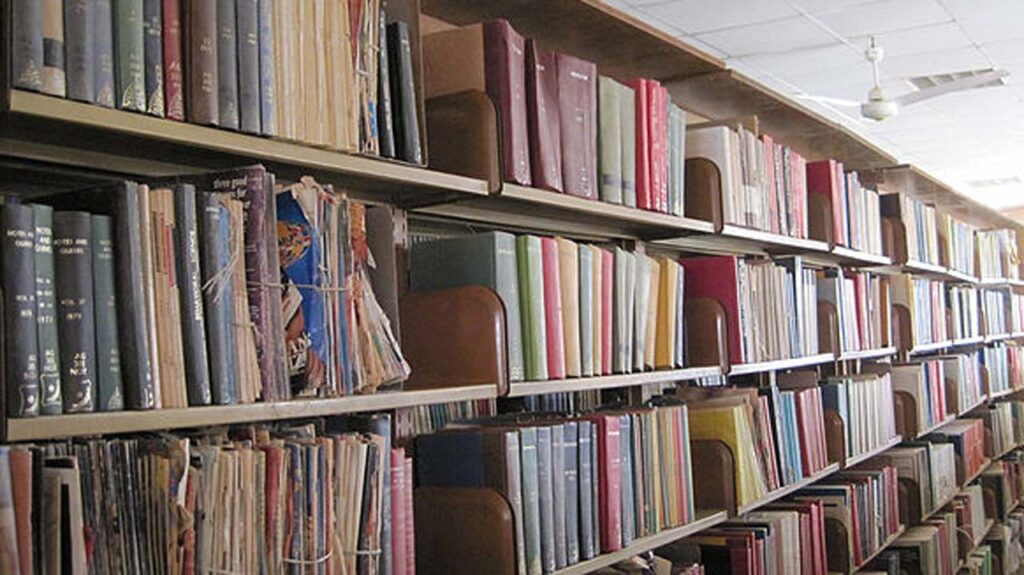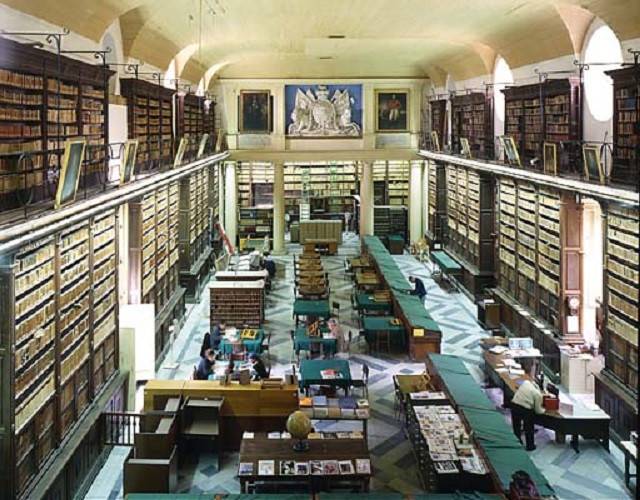Exploring Cultural and Historical Landmarks in Oyo and Ogun States, Nigeria: Centenary Hall, Mapo Hall, Old Oyo National Park, National Library of Nigeria
Centenary Hall is a notable event venue located in Abeokuta, the capital city of Ogun State, Nigeria. The hall is a popular space for hosting various events, including conferences, seminars, concerts, and ceremonies. Here’s some information about Centenary Hall:
Location:
Centenary Hall is situated in the heart of Abeokuta, the capital city of Ogun State. The specific address and details can be obtained locally or from official sources.
Significance:
The hall holds historical and cultural significance as it was likely built to commemorate a centenary or significant milestone. The name “Centenary Hall” suggests that it might have been constructed around a significant anniversary or event.
Event Venue:
Centenary Hall is primarily known as a versatile event venue. It is equipped to host a wide range of events, and its facilities may include a large auditorium or hall, meeting rooms, and other amenities required for events.
Cultural and Social Functions:
The hall is likely used for cultural, social, and educational functions, contributing to the community’s vibrancy by hosting events that bring people together.
Community Gatherings:
Centenary Hall may serve as a space for community gatherings, official ceremonies, and public meetings. Its central location in Abeokuta makes it accessible for residents and visitors alike.

Architectural Features:
While specific details about the architectural features of Centenary Hall may vary, event venues like this often have modern facilities, audio-visual equipment, and seating arrangements suitable for diverse events.
Usage and Booking:
Centenary Hall is likely available for booking by individuals, organizations, or government agencies looking to host events. Those interested in using the venue can typically contact the management for availability, reservations, and other relevant details.
Local Landmark:
In addition to its function as an event venue, Centenary Hall might be considered a local landmark due to its role in hosting significant events and gatherings in Abeokuta.
Mapo Hall: Historic Landmark, Ibadan, Oyo State

Mapo Hall is a historic building located in Ibadan, the capital city of Oyo State, Nigeria. Here is some information about Mapo Hall:
Location:
Mapo Hall is situated in the heart of Ibadan, specifically in Mapo area. The address is often referred to as Mapo Hill, and the hall is strategically positioned on top of the hill, offering panoramic views of the city.
History:
- The construction of Mapo Hall began in 1925 during the colonial era. It was completed in 1929 and served as the colonial administrative headquarters for Ibadan Province.
- The hall was designed by Engineer Robert Taffy Jones and built with the assistance of local artisans.
Architecture:
- Mapo Hall is known for its distinctive architecture, blending colonial and indigenous Yoruba styles.
- The building features a prominent tower and a spacious hall. The tower has a clock facing different directions, making it visible from various parts of Ibadan.
Symbolic Significance:
- Mapo Hall is a symbol of the city’s history and governance. It stands as a testament to the administrative and architectural legacy of the colonial period.
- The hall has also been a venue for various official and cultural events over the years.
Cultural Significance:
- Beyond its administrative functions, Mapo Hall has become a cultural landmark in Ibadan. It represents the city’s heritage and has hosted important ceremonies and events.
Current Use:
- While Mapo Hall served as the administrative headquarters during the colonial era, it has undergone changes in function over the years.
- Today, Mapo Hall is used for a variety of events, including cultural programs, official ceremonies, and other public gatherings.
Landmark Clock Tower:
- The clock tower on Mapo Hall is a prominent feature. It not only serves a functional purpose but also adds to the architectural significance of the building.
- The clock tower has become a recognizable landmark in Ibadan, and its chimes mark the passage of time for residents.
Tourist Attraction:
- Mapo Hall is a tourist attraction, drawing visitors interested in historical and architectural landmarks.
- The hill on which Mapo Hall is situated offers scenic views of Ibadan, making it a picturesque location.
Old Oyo National Park: Oyo State, Nigeria

The Old Oyo National Park is a national park located in the southwestern part of Nigeria, specifically in Oyo State. Here’s some information about the Old Oyo National Park:
Location:
The Old Oyo National Park is situated in the northern part of Oyo State, Nigeria. It spans across a considerable land area, providing a natural habitat for various wildlife species.
Establishment:
The park was established in 1991 and covers an area that was historically significant as the site of the Old Oyo Empire, an ancient Yoruba kingdom.
Ecological Diversity:
The Old Oyo National Park is known for its diverse ecosystems, including grassland, savannah, and forest areas. It features a range of plant and animal species that contribute to the biodiversity of the region.
Wildlife:
The park is home to a variety of wildlife, including elephants, buffaloes, antelopes, baboons, and a rich bird population. Visitors to the park have the opportunity to observe and appreciate these animals in their natural habitat.
Historical Significance:
Apart from its ecological importance, the Old Oyo National Park holds historical significance as it encompasses parts of the old Oyo Empire. The park includes archaeological sites and remnants of historical structures, providing insights into the region’s past.
Tourist Activities:
- Wildlife Viewing: The park offers opportunities for wildlife viewing and photography. Safari tours within the park allow visitors to see animals in their natural surroundings.
- Bird Watching: Bird enthusiasts can enjoy the diverse bird species found in the park, making it a destination for birdwatching.
- Hiking and Nature Walks: There are trails within the park that allow visitors to explore its natural beauty on foot. Hiking and nature walks provide a closer look at the flora and fauna.
- Camping: Some national parks, including Old Oyo, may offer camping facilities for visitors interested in spending more time in the park.
Preservation Efforts:
National parks play a crucial role in the conservation of biodiversity and natural ecosystems. The Old Oyo National Park contributes to the preservation of the region’s flora, fauna, and cultural heritage.
Visitor Information:
For those planning to visit the Old Oyo National Park, it is advisable to check with park authorities or relevant agencies for information on park fees, accommodation options, and any specific guidelines for visitors.
Please note that conditions and offerings at national parks may change over time, so it’s recommended to obtain the most up-to-date information before planning a visit.
National Library of Nigeria, Ibadan Oyo State.

National Library of Nigeria, Ibadan was built in 1964. It is notable as a repository of knowledge where various educational materials can be accessed by the public. It was built by the Federal Government of Nigeria.
The national library is a local repository of knowledge created by the government to allow accessibility of educational materials to Nigerians.
Location:
The National Library of Nigeria, Ibadan Branch, is located in Ibadan, the capital city of Oyo State, Nigeria. The specific address and contact details can be obtained by checking with local directories or contacting the National Library directly.
Role:
The National Library of Nigeria serves as the legal deposit library and the repository of the nation’s intellectual heritage. It is responsible for collecting, preserving, and providing access to a wide range of published materials.
Functions:
- Legal Deposit: The National Library is designated as the legal deposit library in Nigeria, which means publishers are required by law to deposit copies of their publications with the library. This helps in building a comprehensive national collection.
- Reference Services: The library provides reference services to researchers, students, and the general public, assisting them in accessing information from its collection.
- Cultural and Educational Programs: National Libraries often organize cultural and educational programs, including book exhibitions, workshops, and seminars, to promote literacy and a reading culture.
- Online Catalog and Services: The National Library typically maintains an online catalog, allowing users to search for materials in its collection. Some services may be accessible online.
The information you provided offers insights into the funding, historical development, and key functions of the National Library of Nigeria. Here’s a summary:
Funding and Development:
- Federal Government Support: The National Library of Nigeria is funded by the Federal Government of Nigeria, indicating its status as a national institution.
- Ford Foundation’s Involvement: Originally, the Ford Foundation was involved in the project. The foundation played a role in bringing in professionals, donating books, and funding the library’s expansion.

Mission and Importance:
- Intellectual Memory of the Nation: The National Library is described as a vital organ that serves as the intellectual memory of the nation.
- Support for Policy Implementation: The library provides intellectual ammunition to aid government officers in policy implementation. It plays a crucial role in preserving and providing access to the intellectual foundation of government policies.
- Imbalance Due to Policy Instability: Challenges arise at times due to policy instability resulting from military interventions in governance. This can create an imbalance between the intellectual memory of prior policies and the intellectual foundation of new governments.
Collections and Legal Deposit Provision:
- Legal Deposit Provision: The library receives copies of books published in the country through the legal deposit provision in the Library Act. This makes the library one of the largest depositories of knowledge in Nigeria.
- International Publications: In addition to local publications, the library collects publications on contemporary or new ideas from international organizations.
Responsibilities:
- ISBN and ISSN Issuance: The National Library issues International Standard Book Numbers (ISBN) and International Standard Serials Numbers (ISSN) to publishing organizations.
- Readership Promotion Campaign: The library runs an annual Readership Promotion Campaign nationwide. This campaign aims to create awareness about the importance of literacy and to encourage reading among the citizenry.
Technological Advancements:
- ISBN and ISSN Process: The process of issuing ISBN and ISSN has become more manageable with the infusion of appropriate technology. Mobile technology has contributed to easing the process at regional offices.
The National Library of Nigeria, with its rich history and diverse responsibilities, plays a pivotal role in preserving the intellectual heritage of the nation and promoting literacy and reading culture through various initiatives.
